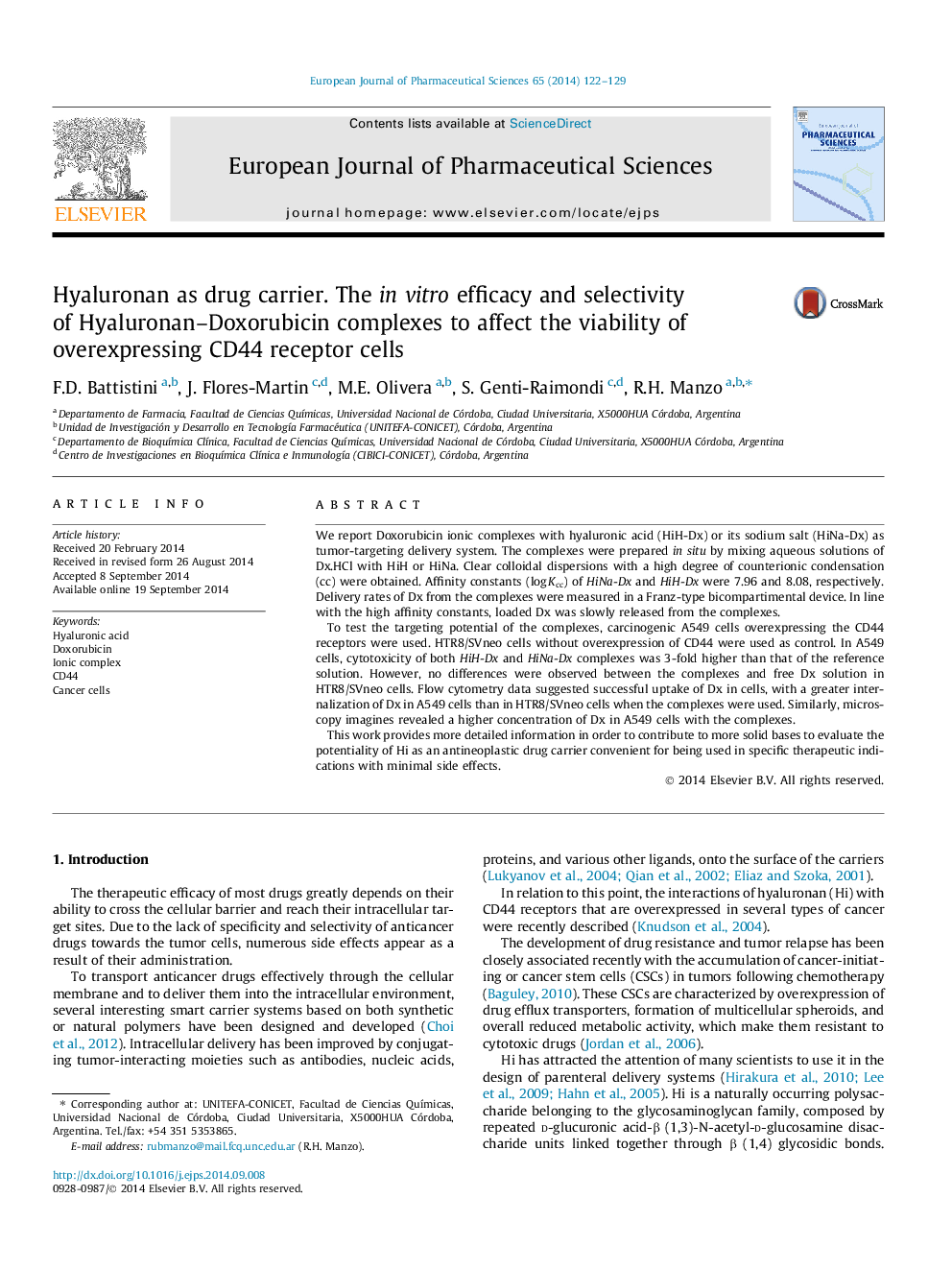| Article ID | Journal | Published Year | Pages | File Type |
|---|---|---|---|---|
| 5809944 | European Journal of Pharmaceutical Sciences | 2014 | 8 Pages |
We report Doxorubicin ionic complexes with hyaluronic acid (HiH-Dx) or its sodium salt (HiNa-Dx) as tumor-targeting delivery system. The complexes were prepared in situ by mixing aqueous solutions of Dx.HCl with HiH or HiNa. Clear colloidal dispersions with a high degree of counterionic condensation (cc) were obtained. Affinity constants (log Kcc) of HiNa-Dx and HiH-Dx were 7.96 and 8.08, respectively. Delivery rates of Dx from the complexes were measured in a Franz-type bicompartimental device. In line with the high affinity constants, loaded Dx was slowly released from the complexes.To test the targeting potential of the complexes, carcinogenic A549 cells overexpressing the CD44 receptors were used. HTR8/SVneo cells without overexpression of CD44 were used as control. In A549 cells, cytotoxicity of both HiH-Dx and HiNa-Dx complexes was 3-fold higher than that of the reference solution. However, no differences were observed between the complexes and free Dx solution in HTR8/SVneo cells. Flow cytometry data suggested successful uptake of Dx in cells, with a greater internalization of Dx in A549 cells than in HTR8/SVneo cells when the complexes were used. Similarly, microscopy imagines revealed a higher concentration of Dx in A549 cells with the complexes.This work provides more detailed information in order to contribute to more solid bases to evaluate the potentiality of Hi as an antineoplastic drug carrier convenient for being used in specific therapeutic indications with minimal side effects.
Graphical abstractSchematic illustration of CD44-Hi-Dx complex. Mechanism implied in the enhanced internalization of Dx into cells.Download high-res image (128KB)Download full-size image
